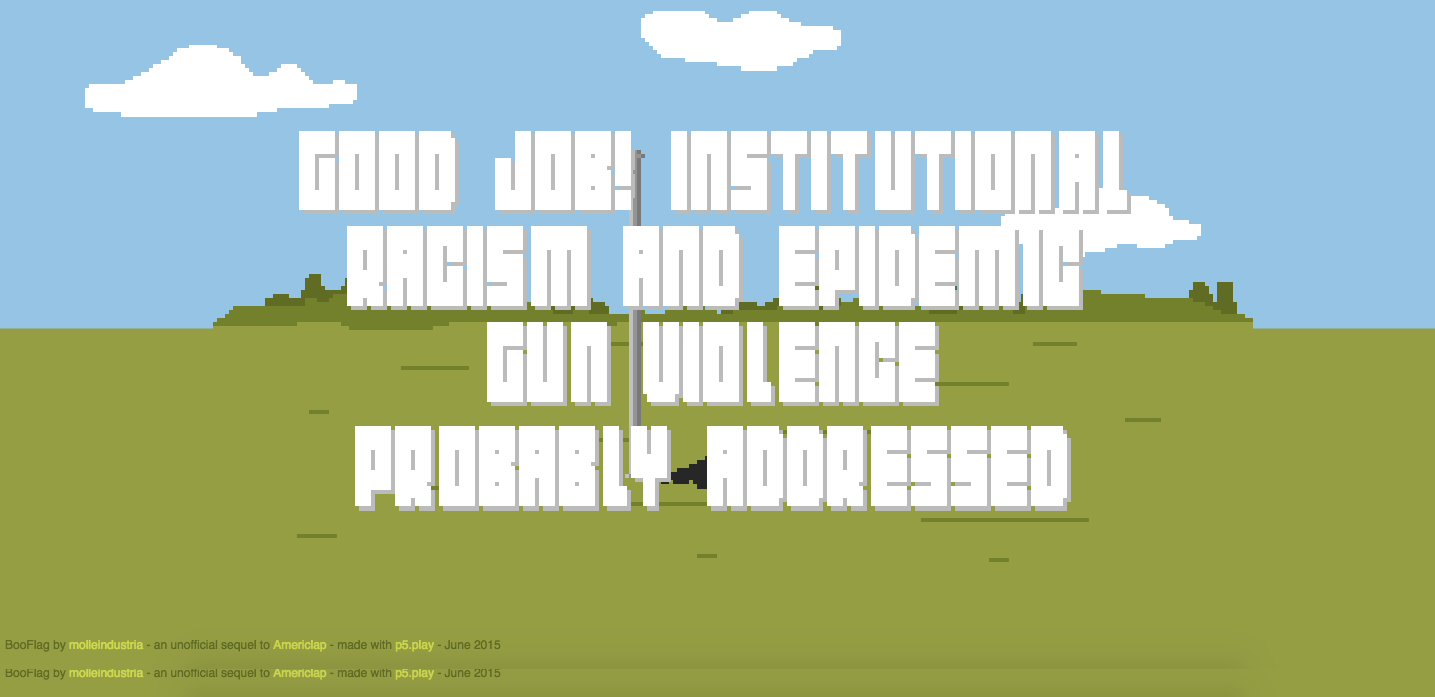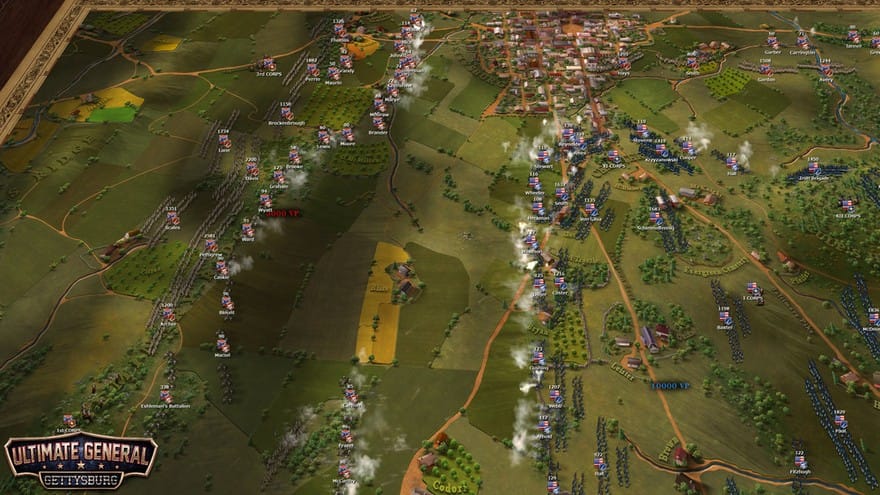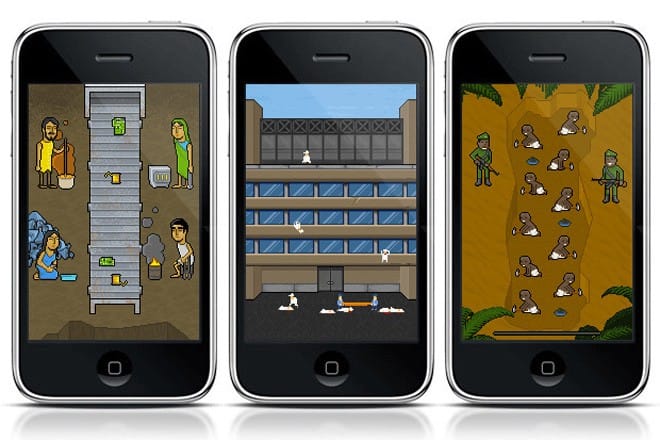Videogames understand symbols, except when it comes to the Confederate flag

There is a strain of leftist discourse that gets hung up on the difference between genuine victories and achievements that distract from the ‘real goal.’ In Marxist terms, this is a question of whether an action matters if it doesn’t bring about the revolution. The dichotomy it establishes is disingenuous but powerful nonetheless
The question of what constitutes a red herring did not die in 1913.
Consequently, the left has a far-from-unblemished record when it comes to the rights of women and minorities. In Separate Spheres: The Opposition to Women’s Suffrage in Britain, the historian Brian Harrison notes that socialist Ernest Belfort Bax responded to the suffrage movement by declaring: “The anti-man agitation…forms a capital red herring for drawing the popular scent off class opposition by substituting sex antagonism.” The question of what constitutes a red herring did not die with Bax’s 1913 statement. It endures in arguments that hashtag activism and uses of the term microaggression are morally unserious. The latest heir to this discursive tradition is the suggestion that debates about the Confederate flag are diversions from the ‘real’ work of achieving gun control and doing something about racist violence.
Totally down with ppl removing the Confederate flag in the States. Isn’t the debate a distraction from real issues of gun control & racism?
— Dave Crewe (@ccpopculture) June 24, 2015
Is the controversy over the confederate flag just a distraction from the gun debate? I asked Charleston’s Mayor. pic.twitter.com/dF8fvAqXGz
— Morgan Radford (@MorganRadford) June 23, 2015
“Mass shootings used to inspire a national conversation on guns,” Jessica Winter writes at Slate. “Now we find something else to talk about.” On Molleindustria’s blog, the game developer Paolo Pedercini claims that Winter’s article influenced his decision to make BooFlag. BooFlag is a simple browser game. There is an eight-bit Confederate flag at the center of your screen. You grant your browser access to your microphone and bring the flag down by loudly booing. As the flag nears the ground it is lit ablaze. It transforms into ashes as it touches the ground. “Good job! Institutional racism and epidemic gun violence probably addressed,” is then printed in all-caps at the centre of your screen.
BooFlag presents itself as a work of satire but its humour is imprecise. “After Newtown,” Winters writes, “we realized that the conversation (about gun control) would never lead anywhere, and so we found other things to talk about.” Molleindustria takes this argument about the struggle to achieve some change even though gun control is off the table and curdles it. BooFlag mocks supporters of the Confederate flag by desecrating their totem but reserves its punchline for those who campaigned to have bring the flag down. The order of these jokes matters; BooFlag, like Ernest Bax, ultimately directs its ire at those it believes are pursuing red herrings.
Why we are talking about flags instead of gun control http://t.co/V0fm3lq1V8 pic.twitter.com/uTmFJ96yA5
— Paolo Pedercini (@molleindustria) June 24, 2015
For much of its gameplay, BooFlag is oddly cathartic. You yell and yell some more, and for once your voice has an impact. Vox populi! That’s why the game’s conclusion that your activism has achieved nothing of note is so galling. “No nation imagines itself coterminous with mankind,” the political scientist Benedict Anderson argues in Imagined Communities. As such, symbols such as flags act as indicators of where the border between those the nation serves and those it doesn’t lies. To wit, The Atlantic’s Sidney Blumenthal notes the Confederate flag in front of the South Carolina State House that has been the focal of the past week’s debate “[has] been flying there since 1962, [as] an emblem of resistance to the civil rights movement.” BooFlag, which is set in empty field, elides this context. The ongoing usage of the Confederate flag matters, but BooFlag stacks the deck in order to tell players that their voices are meaningless.
Even if we accept BooFlag’s contention that bringing down Confederate flags is of no real use, its gameplay does little to suggest that this particular form of activism precludes all others. This is, after all, a game that takes five seconds to play. BooFlag, then, believes this type of protest will always be unimportant. It is not so much a work of satire as it is jaded and cynical in worldview. BooFlag, like Ernest Bax and subsequent generations of righteous scolds, believes that all forms of advocacy that don’t advance its makers specific concerns are morally unserious.
///
Apple Inc of 1 Infinite Loop, Cupertino, would like you to know that it is morally serious, thank you very much.

How else to explain its decision to remove a swath of games featuring the Confederate flag from its App Store? As Touch Arcade first reported, games impacted by this decision include Ultimate General: Gettysburg and entries in the Hunted Cow series. Within a few hours, all games featuring the flag had disappeared, even though many were ostensibly historical recreations. Touch Arcade later reported: “Sources close to the company say that it’s working with the developers affected by the flag ban to get the issue resolved and get the games back on the App Store. However, the developers will have to either remove or replace the Confederate flag.”
There is nothing barring Apple from making these decisions, rash though they may seem. Much as Walmart, contrary to the complaints of some of its customers, did not violate any freedoms by refusing to sell Confederate merchandise, Apple is well within its rights here. Apple’s inconsistent content policies—the App Store is governed by different rules than iTunes; Swastikas remain in the App Store while the Confederate flag has now been expunged—are likewise not really news. These various quirks have all been rediscovered just as Apple has suddenly discovered the Confederate flag.
Apple is committed to being morally serious, whatever that means.
“Apple is still treating games like they don’t matter,” writes VentureBeat’s Jeff Grubb. Of all the things that don’t matter to Apple, games probably aren’t at the top of the list. The Confederate flag was an abomination long before Dylan Roof opened fire in Charleston’s Emanual African Methodist Episcopal Church. That reality simply did not register with Apple. Now it has, and Apple is committed to being morally serious, whatever that means.
The posturing is annoying. Posturing is always annoying. Some of the games removed from the App Store appear to be little more than historical recreations. In an amusing twist of fate, they are genuine embodiments of the disingenuous “heritage not hate” conservative talking point. If these games return to the App Store without their flags, they will be diminished though not ruined. This is not a grand tragedy, but it is a silly and unnecessary outcome.

Apple and Molleindustria do not have a particularly amicable history. The latter’s game, Phone Story, which attempted to engage with the various labour practices that went into making iPhones, was removed from the App Store in 2011. The two companies have, however, fallen into the same interpretive trap with the Confederate flag. In their own ways, they have each failed to conceptualize the symbolic importance of flags in general and that flag in particular. In their attempts to formulate morally serious responses, they have therefore wound up targeting a variety of valuable voices: historical tools, activists seeking justice, and citizens who are justly offended by the Confederate flag. For an industry that often traffics in powerful symbols, it’s a shame that what’s on offer here is smarm.



